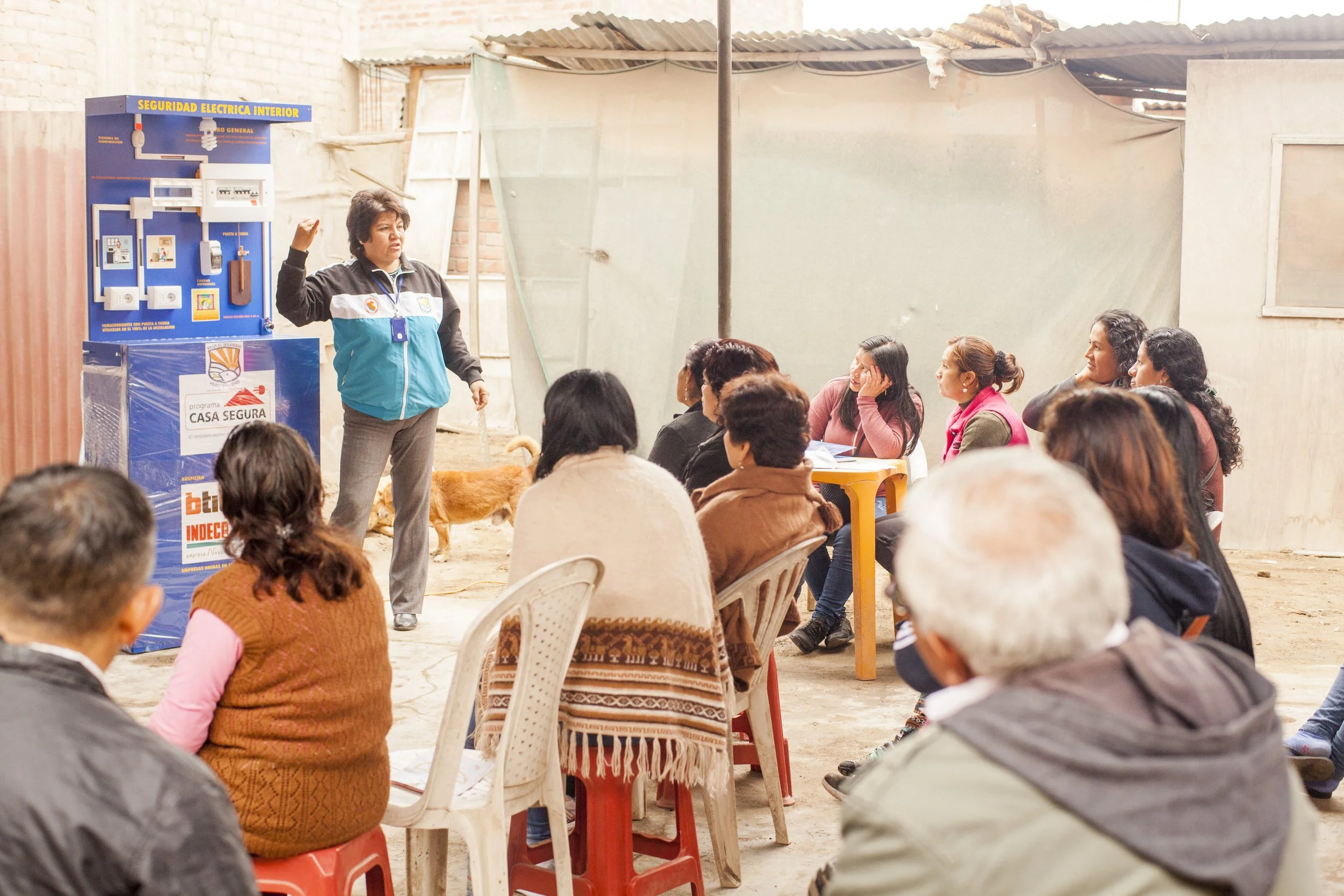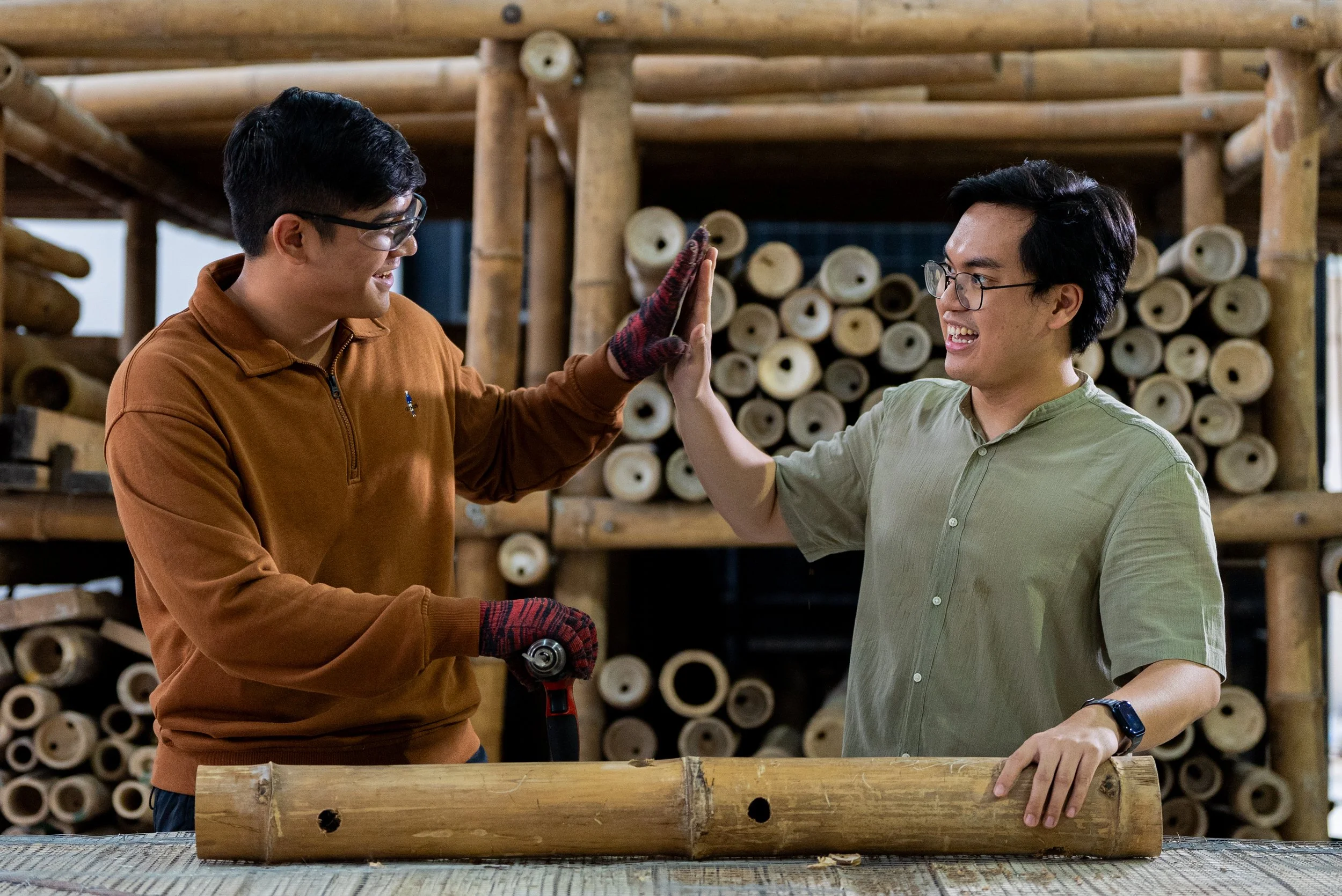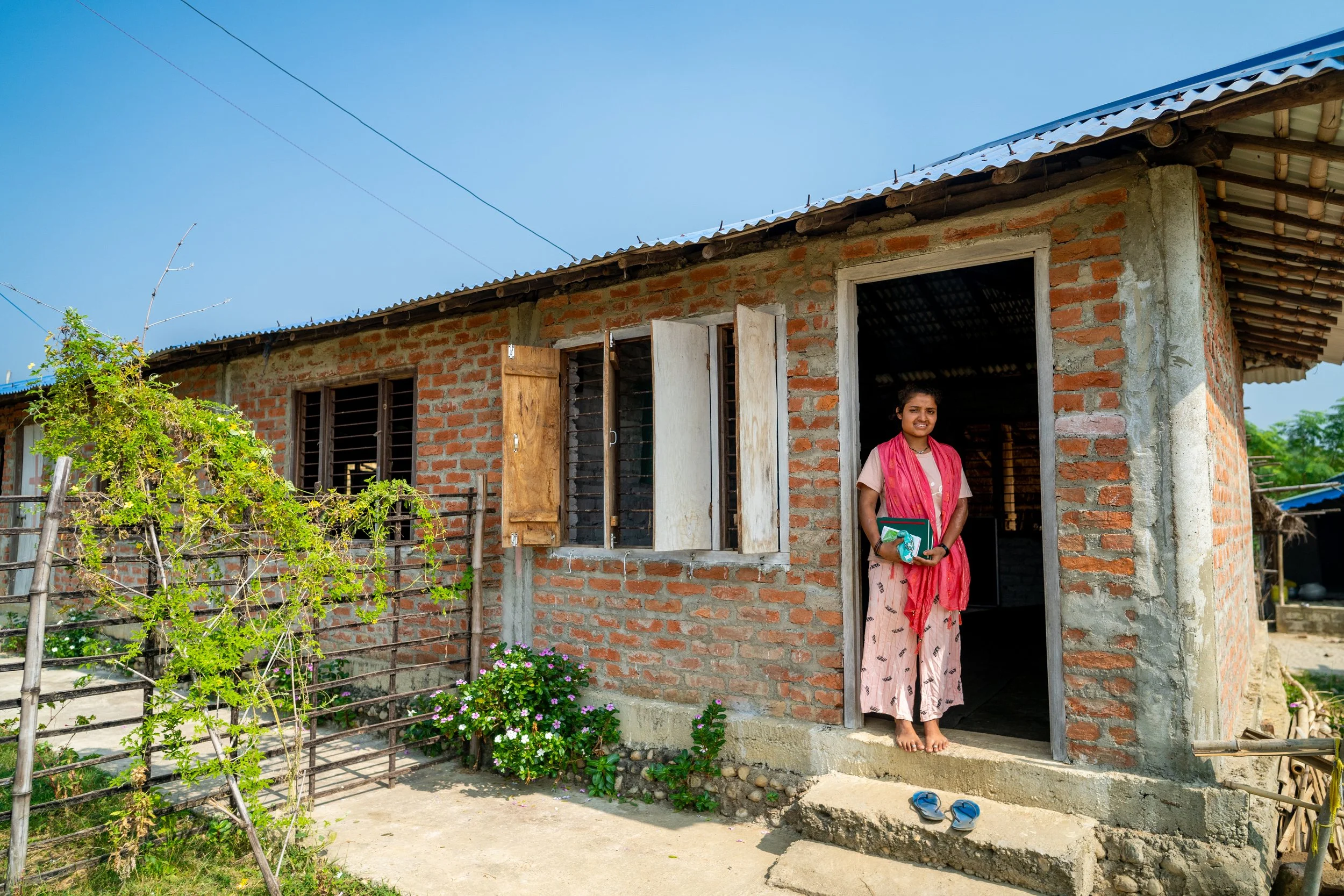Affordable Housing & Technology
Training Builders

The Beginning
The Hilti Foundation recognizes that truly impactful affordable housing solutions extend beyond innovative technologies; they require skilled hands and informed minds. The "Training Builders" initiative is a crucial component of our Affordable Housing & Technology focus area, dedicated to professionalizing the construction workforce, particularly in informal settings across the Global South. By equipping builders with essential knowledge, skills, and best practices, we aim to ensure that homes are not only affordable and technologically advanced but also safe, durable, and resilient.

The Challenge
A significant obstacle to safe and quality housing in many developing regions is the prevalence of informal construction. In places like Peru, where an estimated 80% of families build or modify their own homes, construction often proceeds without professional supervision or adequate training. This lack of know-how leads to poor construction quality, structures that fail to meet basic building standards, and increased vulnerability to natural disasters such as earthquakes and typhoons.
Furthermore, some innovative materials, like bamboo, have suffered from a "poor man's timber" reputation due to their improper use in informal settings. Many informal builders also face limited awareness of available training programs, coupled with time and financial constraints that prevent them from accessing critical education. Addressing these gaps is vital to foster a skilled workforce capable of delivering sustainable and disaster-resilient housing solutions at scale.
Our Approach
The Hilti Foundation addresses these challenges through targeted capacity-building initiatives and partnerships designed to professionalize the construction sector:
Curriculum Development:
Developing standardized training modules and incorporating new diagnostic tools (e.g., in VIPRO for assessing home safety and structural defects) to ensure relevant and effective learning.
Partnerships and Accreditation:
We collaborate closely with public authorities and private sector firms to raise awareness and integrate certified training programs into local ecosystems. The BASE Bamboo Academy, for instance, is accredited by the Philippine government, ensuring the credibility and recognition of the skills imparted.
Knowledge Transfer:
Providing fundamental information and construction practices, ensuring builders are equipped for safer and more effective construction in low-cost environments.
Holistic Professionalization:
Supporting the professionalization of construction workers, site managers, and the entire supply chain involved in affordable housing, fostering a culture of quality and safety.
Direct Training Programs
Swisscontact Construya (Latin America, e.g., Colombia and Peru):
A leading qualification program for the informal construction sector. It develops and delivers specialized training modules in collaboration with state vocational training institutions and the private sector. These programs offer free access to essential knowledge and practical skills for builders and retailers, focusing on improved construction practices, technical solutions, and sharing industry best practices. Construya also empowers homeowners by sensitizing them to safer and more sustainable building choices.
Progressive Housing (VIPRO):
As part of its broader mission, VIPRO specifically targets and empowers "master builders" in informal neighborhoods through dedicated education and skills development. These free training sessions, led by expert engineers, teach the seismic and structural retrofitting of vulnerable houses. The training includes practical modules and diagnostic tools for assessing home safety and identifying structural defects, directly addressing the technical shortcomings prevalent in self-construction.
BASE Bamboo Academy (Philippines, Nepal, international):
Rooted in the BASE Bahay Foundation's expertise, the Bamboo Academy provides government-approved training for a diverse audience, including developers, architects, engineers, and masons. The curriculum focuses on the correct application of Cement Bamboo Frame Technology (CBFT), adherence to established standards, and understanding national building codes. The Academy plays a crucial role in elevating bamboo's status to a high-tech, safe, and sustainable construction material through knowledge transfer.
Objectives and Goals
The core objective of the "Training Builders" initiative is to ensure the construction of safer and higher-quality housing by professionalizing the workforce in informal settings. Key goals include:
To provide essential know-how and adherence to basic building standards, thereby reducing risks associated with poor construction, especially in disaster-prone areas.
To elevate the reputation and ensure proper use of innovative and sustainable materials like bamboo through professional application.
To expand awareness of and access to vital training programs for informal builders, overcoming time and financial constraints.
To develop a capable workforce essential for delivering sustainable, disaster-resilient, and affordable housing solutions at scale.
To support the professional growth of construction workers, site managers, and the broader construction supply chain.
To contribute to the improved economic well-being of trained builders by enhancing their skills and opening new opportunities.
Partnerships and Collaborations
Swisscontact: As our primary partner, Swisscontact leads direct training programs in Peru and Colombia, providing expert-led training to enhance skills in specialized construction.
Habitat for Humanity: Collaborates on the ground in Nepal, integrating local builder training within its bamboo construction projects to ensure quality and build local capacity.
BASE Bahay Foundation, through its BASE Bamboo Academy, develops and delivers comprehensive training modules, and trains architects, engineers, builders and construction workers for various aspects of CBFT construction, ensuring its proper and safe application.
Training Institutions & Government Bodies: We develop and integrate standardized training modules into formal vocational systems, ensuring broad reach and recognition.
Through our partnership with Habitat for Humanity, we invest in the Urban Housing Practitioners Hub (UHPH). This platform facilitates system change and fosters collaboration among diverse partners in Latin America and Asia. As part of this approach, our training programs directly empower a wide range of collaborators who are essential to the construction supply chain.
Local "Master Builders" and construction workers are crucial collaborators whose insights help develop relevant training curricula.
Local retailers in the construction supply chain are trained to ensure knowledge of proper materials and practices extends throughout the market.
Expert engineers and trainers provide specialized knowledge and hands-on instruction.
Construction enterprises and building contractors are supported through programs that promote their professionalization and long-term sustainability.

Impact
Skilled Workforce Development: Swisscontact Construya has successfully trained 40,000 masons, directly contributing to improved living conditions for 160,000 residents. VIPRO's training programs have empowered master builders in Peru, leading to demonstrably safer and higher-quality construction in pilot projects.
Improved Housing Quality: Through enhanced skills and adherence to building standards, the training programs lead to more resilient homes capable of withstanding disasters, increasing the safety and longevity of housing for low-income families.
Economic Opportunity: Skilled builders gain improved livelihoods, often seeing increased income and new business opportunities. For example, individuals like Pramila in Nepal, after receiving mason training, leveraged their new skills to enhance their financial well-being.
Industry Standardization: Training efforts, particularly through the BASE Bamboo Academy, contribute directly to the development and application of building codes and professional standards, formalizing and legitimizing advanced construction methods.
Community Empowerment: Homeowners and community members are empowered through knowledge and the confidence to participate actively in the construction and maintenance of their homes, fostering a sense of ownership and self-reliance.
Outlook & Engagement
We are committed to further scaling and refining the Housing Systems initiative for even greater impact:
Skilled Workforce Development
Swisscontact Construya has successfully trained 40,000 masons, directly contributing to improved living conditions for 160,000 residents. VIPRO's training programs have empowered master builders in Peru, leading to demonstrably safer and higher-quality construction in pilot projects.
Improved Housing Quality
Through enhanced skills and adherence to building standards, the training programs lead to more resilient homes capable of withstanding disasters, increasing the safety and longevity of housing for low-income families.
Economic Opportunity
Skilled builders gain improved livelihoods, often seeing increased income and new business opportunities. For example, individuals like Pramila in Nepal, after receiving mason training, leveraged their new skills to enhance their financial well-being.
Industry Standardization
Training efforts, particularly through the BASE Bamboo Academy, contribute directly to the development and application of building codes and professional standards, formalizing and legitimizing advanced construction methods.
Community Empowerment
Homeowners and community members are empowered through knowledge and the confidence to participate actively in the construction and maintenance of their homes, fostering a sense of ownership and self-reliance.

















